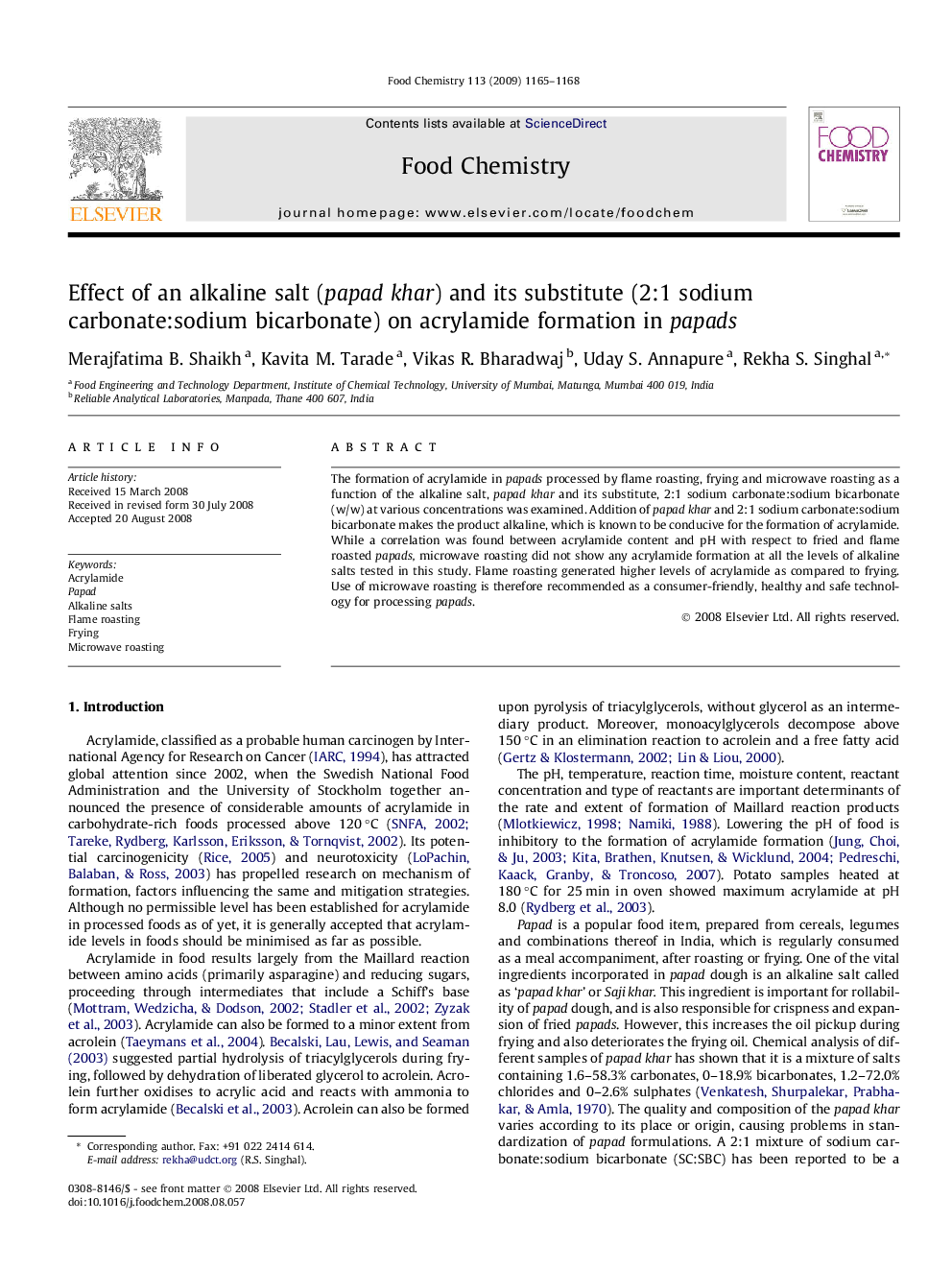| Article ID | Journal | Published Year | Pages | File Type |
|---|---|---|---|---|
| 1188976 | Food Chemistry | 2009 | 4 Pages |
The formation of acrylamide in papads processed by flame roasting, frying and microwave roasting as a function of the alkaline salt, papad khar and its substitute, 2:1 sodium carbonate:sodium bicarbonate (w/w) at various concentrations was examined. Addition of papad khar and 2:1 sodium carbonate:sodium bicarbonate makes the product alkaline, which is known to be conducive for the formation of acrylamide. While a correlation was found between acrylamide content and pH with respect to fried and flame roasted papads, microwave roasting did not show any acrylamide formation at all the levels of alkaline salts tested in this study. Flame roasting generated higher levels of acrylamide as compared to frying. Use of microwave roasting is therefore recommended as a consumer-friendly, healthy and safe technology for processing papads.
